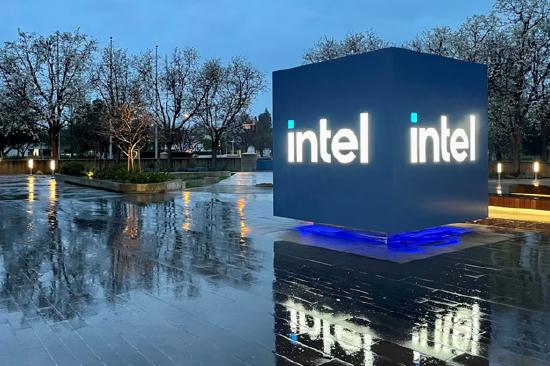
Intel's (INTC) stock price plunged more than 26% in a single day, which not only caught the market's attention, but also left analysts worried about its future. The plunge in Intel's share price has set a new record for the company in recent years, mainly due to the fact that its second quarter of 2024 financial results revealed a decline in the company's performance and announced a series of business adjustment measures, which triggered the market's pessimistic concerns about Intel's future development. Intel CEO Pat Kissinger said that even if Intel has made certain progress in the field of products and technology, such as AI PC chip shipments have increased, but the company is still not fully from AI and other strong trends to benefit from the cost is too high, the profit margin is too low. Intel reported revenue of $12.8 billion in the second quarter, down 1% from a year earlier, and net income (on a GAAP basis) swung from a profit of $1.6 billion to a loss of $1.5 billion in the same period last year.
Intel is in deep trouble, and the road ahead is uncertain. The giants that once ruled the chip space are now struggling with the wave of new technologies. The research and development dilemma of 7nm chip manufacturing technology is like an insurmountable mountain, blocking the pace of Intel's progress. Not only that, the wind is blowing against Intel. The rise of emerging technologies has impacted the traditional data center business, and the once indestructible market position is now shaky. The transformation in the field of foundry, seemingly full of hope, is actually difficult, and the operating loss is expanding, like a sword of Damocles hanging over the head. The performance of the autonomous driving division was even more disappointing, and Mobileye's declining revenue and profit made things worse. In the face of the strong rise of competitors AMD and Nvidia, Intel appears powerless, and the gap between stock prices and market value is a direct reflection of the market's lack of confidence in it. In the future, can Intel break through the difficulties and restore the past glory? Or will it disappear gradually in this fierce market competition? Everything is still up in the air, but there is no doubt that Intel stands at a crossroads of fate, and every decision is a matter of life or death.
Intel's tragic financial results caused its stock price to plummet by 26%, revealing the severe challenges and existential crisis facing the company at present. To address these challenges and pursue a path to recovery, Intel has taken a series of proactive and effective measures to improve performance, enhance competitiveness and enhance market position. Intel further dented investor confidence by announcing a $10bn cost-cutting programme, plans to cut more than 15 per cent of its workforce by more than 15,000 and suspending its dividend to shareholders from the fourth quarter for the first time in 32 years. Intel CEO Pat Kissinger sent out a memo to employees announcing that the company would implement a series of major cost-cutting measures aimed at saving $10 billion by 2025. The core of the plan includes cutting about 15,000 jobs, or about 15 percent of the company's workforce, and most of the measures are expected to be completed during the current year.
Despite many challenges and difficulties, Intel, as one of the most important strategic assets of the United States, has technical strength and market foundation, and the Chip Act launched by the United States Congress is aimed at promoting domestic semiconductor production, which is expected to provide certain policy support and market opportunities for local enterprises such as Intel. In the future, if Intel wants to really get out of trouble and achieve revival, it also needs to make greater efforts in product innovation, market competition and cost control. For example, continuous investment and exploration in AI, 5G and other fields.

According to the foreign media The Verge, recently, Tesla CEO Elon Musk's goals in the field of fully autonomous driving (FSD) have once again fluctuated.
According to the foreign media The Verge, recently, Tesla C…
In early 2026, Greenland along the North Atlantic coast bec…
Recently, the century-old American high-end department stor…
Recently, the U.S. stock market has appeared turbulent amid…
Recently, the largest private equity firm in South Korea, M…
In early 2026, after the Trump administration detained Vene…